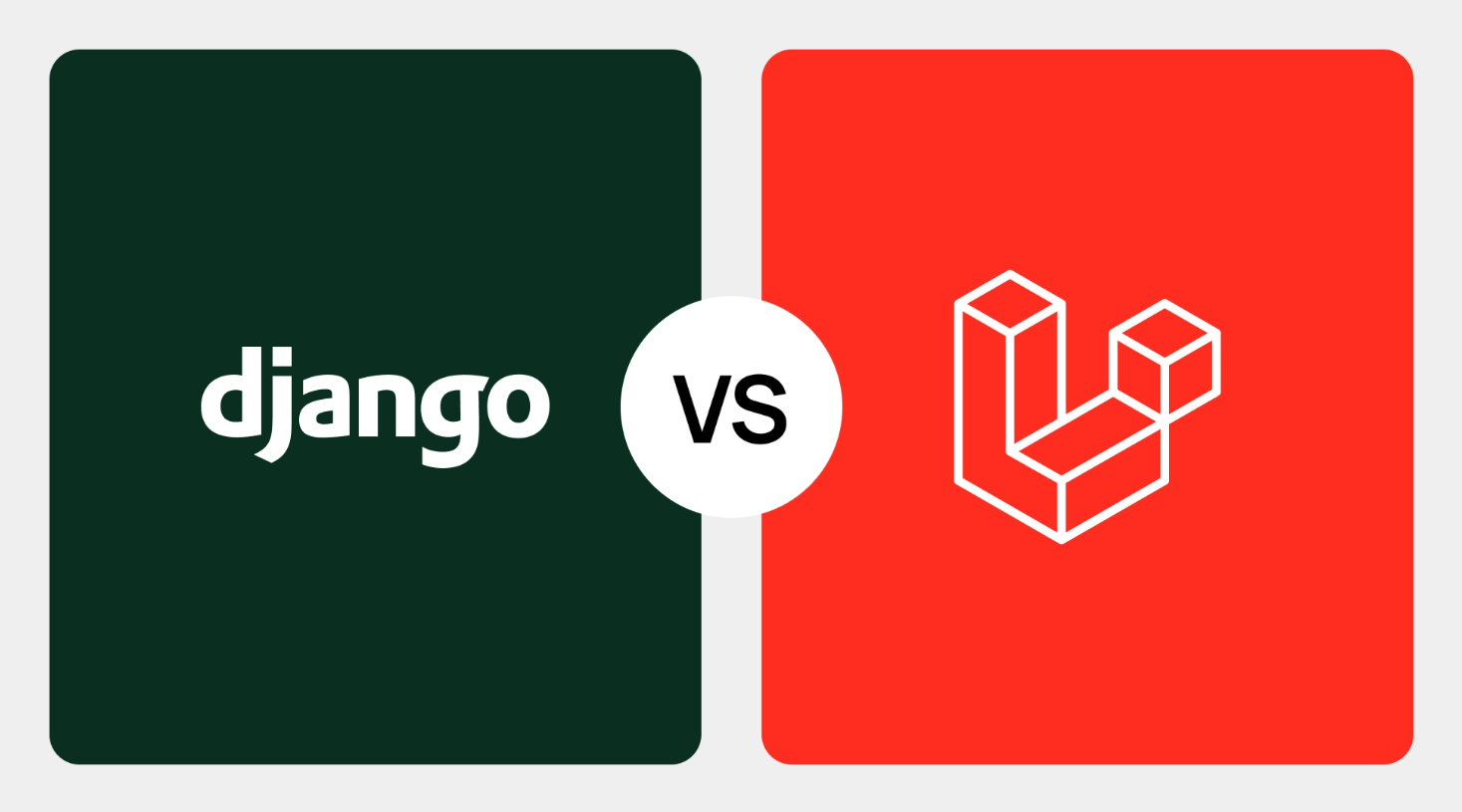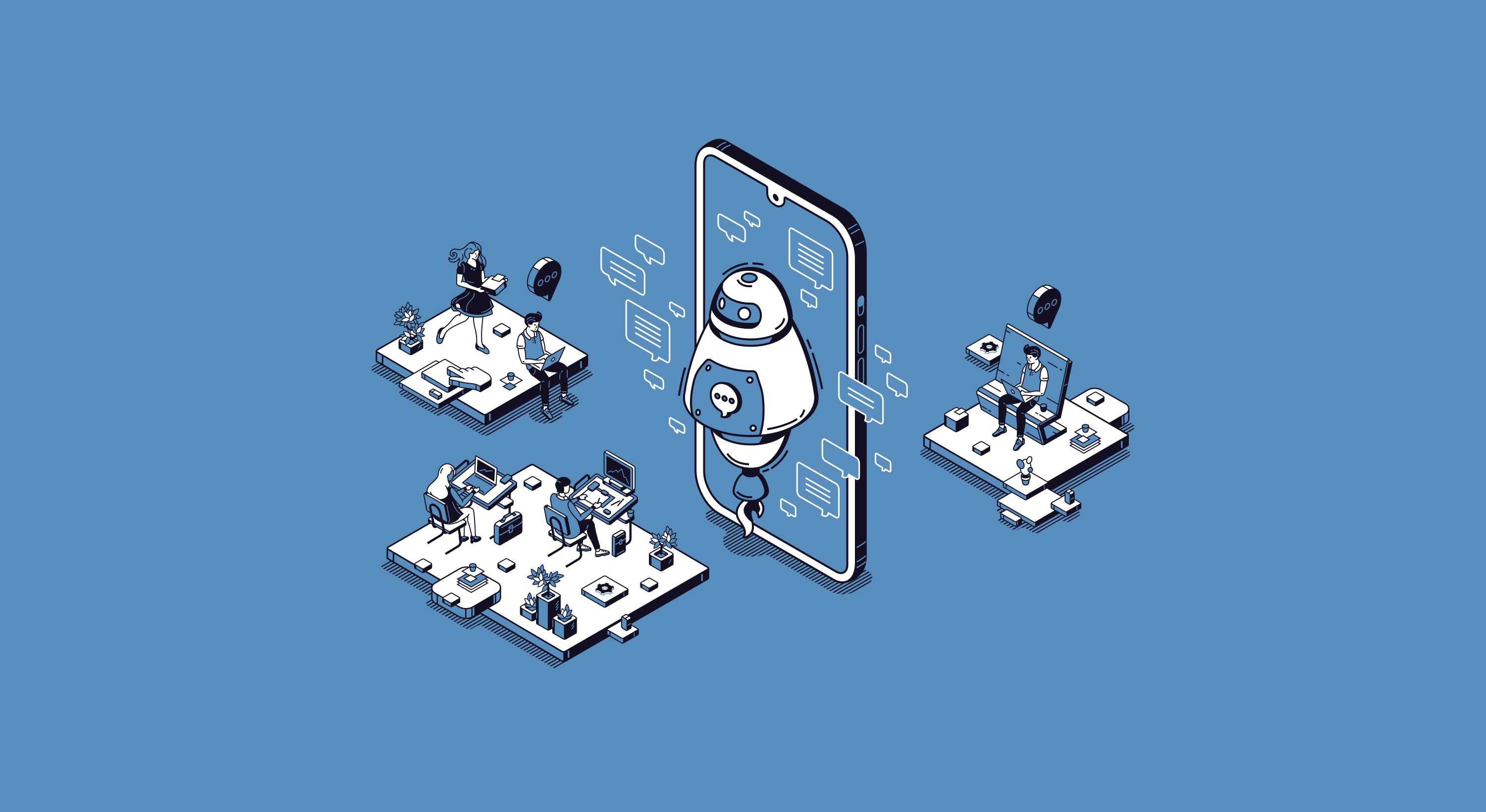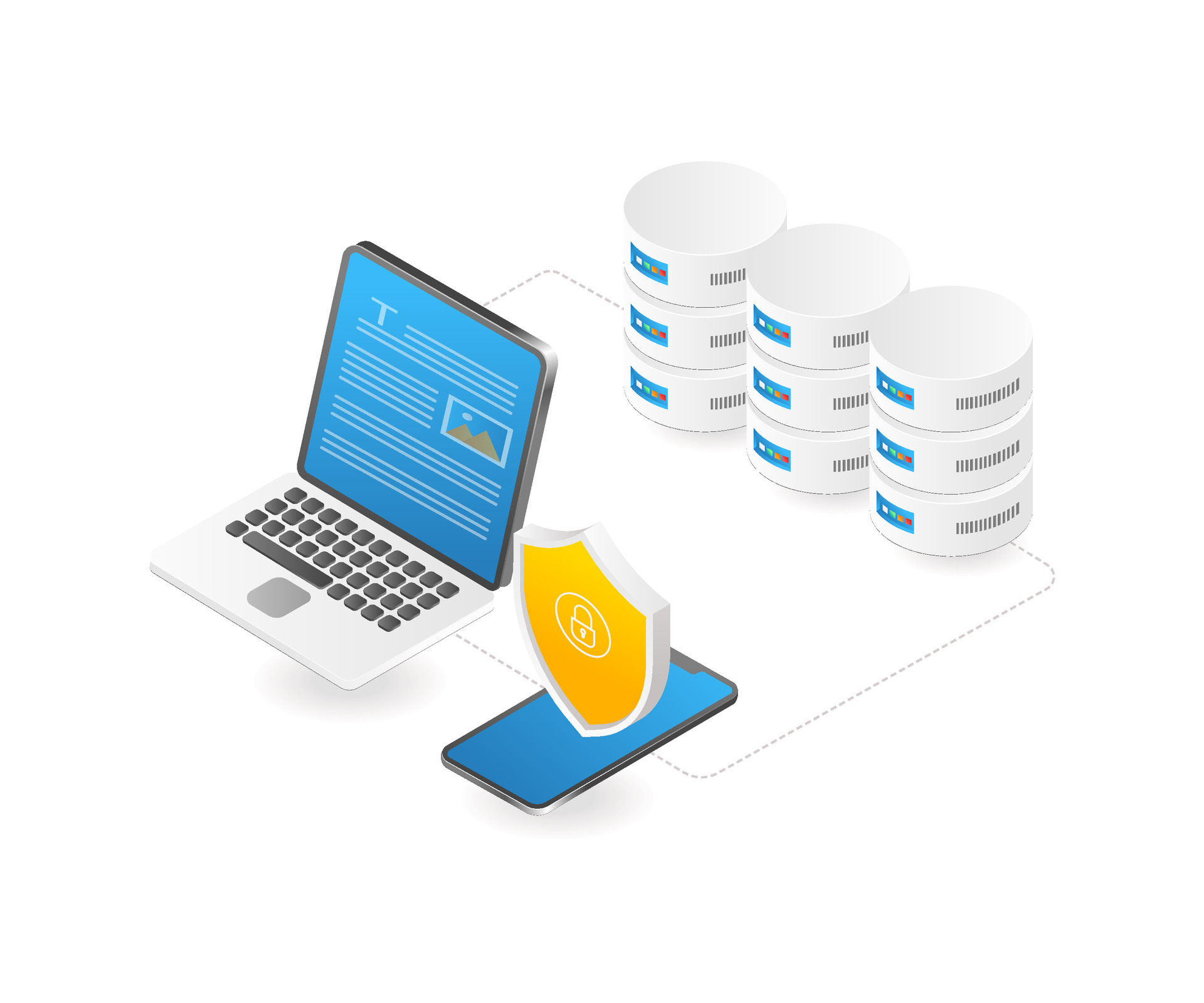Django vs Laravel: Which framework is better?

Choosing between web frameworks such as Django vs Laravel is one of the most important choices in web development. Because a web framework functions as a "skeleton" around which your web application is built, it has the power to make or ruin a project. There are two of the most popular web frameworks: Django vs Laravel. Both offer superior features, functionalities, and capacities to fulfill and accommodate user needs across a range of industry sectors.
In order to resolve this disagreement, this article compares Django with Laravel on a number of factors, including community support, database and microservices support, performance, security, scalability, and simplicity of learning. Let's first review the fundamental ideas pertaining to web frameworks in general before moving on to Django and Laravel.
Laravel: What is it?
Taylor Otwell founded Laravel in 2011, and it may be used to build a content management system (CMS) in a significantly shorter amount of time. It is renowned for simplifying developers' lives with its excellent framework and other built-in capabilities.
Notable Benefits and Features of Laravel
Engine Template
The lightweight layout that comes with Laravel uses dynamic content seeding to create visually appealing forms. It also provides many widgets that combine CSS and JS code with a solid framework.
MVC Architecture Assistance
The MVC architecture, which guarantees distinct business logic and presentation layers, is supported by Laravel. This optimizes the application's adaptability, boosts performance and security, and includes a number of built-in functionalities.
Safety
Web application security is incredibly good with Laravel. Because the password is composed of salted and hashed characters, it is never stored in plain text form in the database. Additionally, the "Bcrypt Hashing Algorithm" is used to generate an encrypted password.
Additionally, it makes use of SQL statement sets designed to foresee SQL injection attacks.
Authorization for Coding
Values that are inconsistent or that cannot be allocated to a specific variable in the code are eliminated by Laravel using a consistent technique.
Object Relational Mapping and Implementation: An Elegant Approach
Eloquent, an object relational mapper (EORM) that integrates a simple PHP Active Record implementation, is used by Laravel. Because of this, web application engineers can now write database queries using PHP syntax rather than SQL code. Comparatively speaking, Eloquent is faster than earlier PHP systems.
Turn on modular functions and libraries
Pre-installed Object-Oriented and Modular libraries—features found in few other PHP frameworks—allow Laravel to make life easier for engineers. For example, the Authentication library serves several purposes and has a fairly simple implementation.
Built-in instruments
Laravel may help you rethink your approach to developing complicated apps, regardless of your level of experience. This is because of the framework's pre-built extensions, excellent community libraries and tools, and additional built-in utilities that all function flawlessly together. Tools from Laravel include Laravel Tinker, Laravel Socialite, IDE Helper, and Laravel Debugbar.
Compatibility
Laravel generates commands for you using Artisan. Code created by artisans will already have all the proper name conventions, interfaces, namespaces, and boilerplate code established. If necessary, you can easily create your own generators for your code.
Nothing Is As Simple as Deploying Laravel projects on the Cloud With Cloudways, you can quickly deploy your PHP projects on managed cloud servers.
Django: What is it?
Django is a remarkable open-source framework that was created in 2005 by the Django Software Foundation. Its stand-alone characteristics allow for testing and development. Django facilitates the management of web applications that get more complicated over time.
Notable Benefits and Features of Django
Because of its versatility, Django can be used to create almost any kind of website. It is compatible with all client-side systems and can deliver content in almost any format, including XML, JSON, HTML, and RSS feeds.
Quick Processing
The main thing that sets Django apart from other frameworks is its unique architecture. Because Django uses the MTV architecture, broadcasting across the Internet is faster and less taxing overall. Its servers are fast and have great uptime.
It's Safe
The Django security framework is designed to "do the right things" in order to safeguard the website. As a result, engineers have a safe method to manage user accounts and passwords and can steer clear of frequent blunders like storing sensitive session data in cookies.
It's Adaptable
Component-based "shared-nothing" engineering is used by Django. Every component of the design is independent of the others and can be altered or replaced as needed.
It may scale for increased activity by adding equipment at any level, such as caching servers, database servers, or application servers, as shown by the distinct divisions between the various components. Django was skillfully scaled by the busiest apps to accommodate their demands.
Relational Object Mapper (ORM)
Thanks to some clever architecture, Django's ORM makes it possible to connect with databases through easy record database administration. With this in place, basic SQL expertise is all that is needed for an engineer.
Built-in instruments
Emailing systems, verification systems, admin dashboards, algorithm-based generators, investment fund management interfaces, data analysis tools, and more are among the features that Django provides. The amount of code time needed to finish projects is decreased by these tools. Additionally, it makes you write better code by motivating you to adhere to industry standards and best practices.
Compatibility
Django is compatible with microservices architecture. It offers built-in security, mobility, and quick deployment. By dividing a Django project into smaller microservices with distinct roles and functions, you can grow it quickly. Moreover, Django's internationalization framework provides multilingual support, enabling it to function with many websites.
>> Maybe you’re also interested in Top 10 Backend Frameworks for Web App Development
Django vs Laravel: Which Framework Is Better for Web Development?
The argument between Django vs Laravel appears to go on forever. It is a result of their shared strong points about web development. They serve several industry verticals, including startups, small- and medium-sized enterprises, and huge conglomerates, with best-in-class features, functions, and use cases.
Therefore, it would be difficult to say with certainty which of the two is superior. It ultimately boils down to a decision based on the specifics and nature of your project. If you're having trouble deciding between Laravel and Django, take a step back and think about which will be better for your project in the long term.
To assist you in choosing which CMS could be a better fit for your project, we've examined a number of CMS features in this post, including performance, scalability, learning curve, documentation, database and library support, and more.
The ideal way to use Django is if you are already familiar with Python or have worked with it before. If you want to build these below, go with Django:
- Social networking platforms that are dynamic and completely customizable, apps that integrate AI or ML, or CRMs for online retailers or travel agencies
- large-scale, safe B2B apps
- Use of data science in application
- software items pertaining to food and drink, science and education, etc.
If you're a newbie or feel comfortable coding in PHP, Laravel is the finest option. Choose Laravel if you wish to construct:
- A blog or small-scale application website
- Interactive site designs with compelling content Low-budget apps that make use of Laravel's Blade Template Engine
- customized websites with JavaScript and CSS
- Applications that are optimized for search engines
- projects with an emphasis on the arts, entertainment, electronics, technology, legislation, etc.
In conclusion, Django vs Laravel: which is the right one?
It's true that Django and Laravel may create applications that are somewhat comparable to each other. The primary distinction is seen in the web application framework since the latter supports PHP while the former supports Python. This corresponds to a few variations in features and libraries to satisfy various needs. In terms of performance (mostly because Python is faster), scalability, and maintenance, Django excels. Decorators, SEO tools, and third-party libraries are some of its built-in utilities. However, because Laravel has fewer capabilities and incorporates strategy infusion, it is simpler to use. But if you are still confused about Django vs Laravel, don’t worry because Axalize can help you choose the best technologies for web development. Our team expertise covers all your demands in web and app development. Contact us now!


